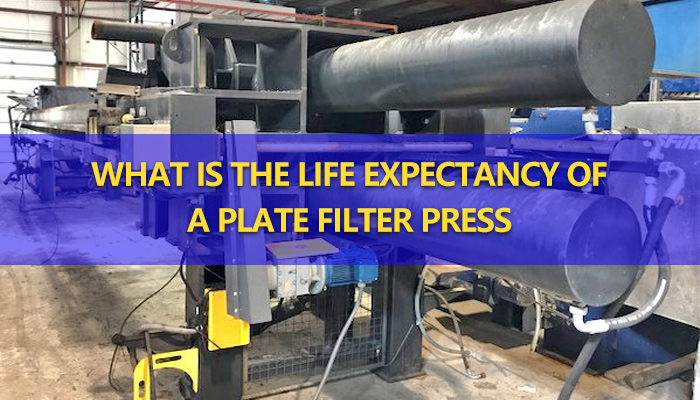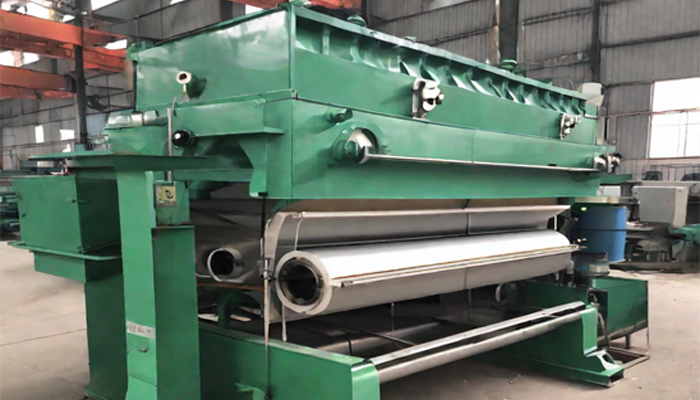The life expectancy of a plate filter press depends on several factors, including the quality of the equipment, the type of materials used in its construction, and the level of maintenance it receives.
Frame and Plate Filter Press
A plate filter press is composed of a frame and a series of plates. The frame is typically made of metal and serves as the structural support for the plates. The plates are made of a filter medium, such as paper or polypropylene, and are designed to separate impurities from the liquid solution.
The plates are arranged in a stacked formation, with each plate having a slightly smaller diameter than the one below it. This creates a tortuous path for the liquid to flow through, allowing for maximum filtration efficiency.

Life Expectancy of a Plate Filter Press
The life expectancy of a press can vary depending on the quality of the equipment and the level of maintenance it receives.
A well-maintained plate filter press can last for many years, with some units lasting up to 20 years or more. However, the average lifespan of a plate filter press is typically around 10-15 years.
Several factors can affect the life expectancy of a filter press. One of the most important factors is the quality of the equipment. A high-quality press made from durable materials is likely to last longer than a lower-quality unit made from cheaper materials.
Additionally, the level of maintenance the unit receives can also impact its lifespan. Regular cleaning and maintenance can help extend the life of the plate filter press while neglecting maintenance can lead to premature wear and tear.
Factors Affecting Life Expectancy
Several factors can affect the life expectancy of a plate filter press. These include:
1. Quality of the equipment: A high-quality filter press made from durable materials is likely to last longer than a lower-quality unit made from cheaper materials.
2. Level of maintenance: Regular cleaning and maintenance can help extend the life of the filter press while neglecting maintenance can lead to premature wear and tear.
3. Operating conditions: The operating conditions of the press can also impact its lifespan. Factors such as temperature, pressure, and flow rate can all affect the life expectancy of the unit.
4. Materials used in construction: The materials used in the construction of the press can also affect its lifespan. For example, a plate filter press made from stainless steel may last longer than one made from carbon steel.

Maintenance and Upkeep
Regular maintenance and upkeep are essential to extending the life of a filter press. The following are some tips for maintaining a filter press:
1. Clean the unit regularly: The press should be cleaned regularly to remove any impurities that may accumulate during use. This can help prevent clogging and extend the life of the filter medium.
2. Inspect the unit regularly: Regular inspections can help identify any potential problems before they become major issues. Check for signs of wear and tear, such as cracks or holes in the plates or frames, and replace any damaged parts promptly.
3. Replace the filter medium: The filter medium should be replaced regularly to ensure optimal filtration efficiency. The frequency of replacement will depend on the type of filter medium used and the level of contamination in the liquid being filtered.
4. Lubricate moving parts: Any moving parts on the filter press should be lubricated regularly to prevent wear and tear.
Conclusion
In conclusion, the life expectancy of a press depends on several factors, including the quality of the equipment, the level of maintenance it receives, and the operating conditions.
Regular maintenance and upkeep are essential to extending the life of the unit and ensuring optimal filtration efficiency. By following the tips outlined above, you can help extend the life of your plate filter press and ensure it continues to perform effectively for years to come.